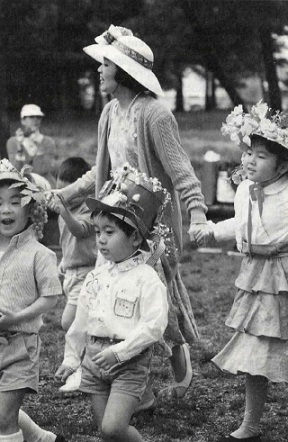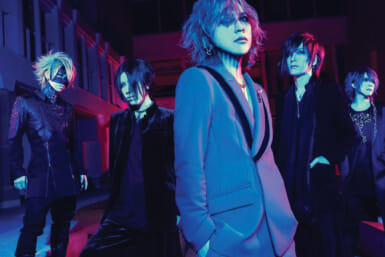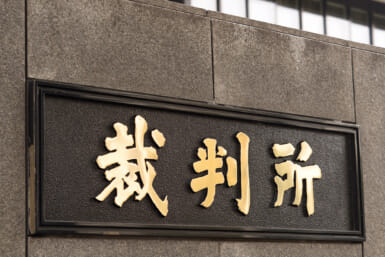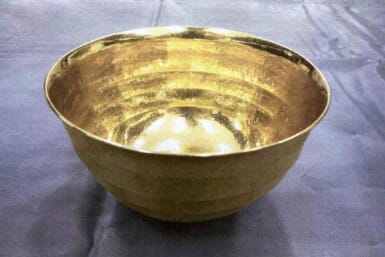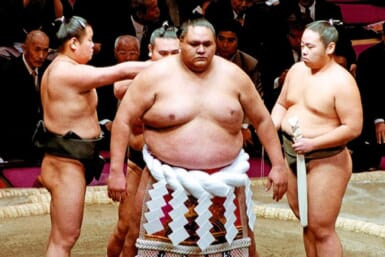by Gillian Barclay
My interview with Mrs. Maria Matsuoka, founder of Maria’s Babies’ Society, was very rejuvenating. Reflecting on her experiences as a headmistress, as well as being a mother of three children and, surprisingly, still a student, she centered on the teachers most important to the Society, where the philosophy is “happy children in a happy school.”
Q: What do you consider are signs of a good teacher?
A: A good teacher sees and highly values a child’s own unique personality. She carefully observes a child’s readiness and the limit and play each child’s stages of learning from this observation. With most skillful timing, she makes a child challenge to make a breakthrough to a higher stage and draws his maximum effort at the same time.
A good teacher also discovers a child’s talent and helps expand it. These are my measures of a good teacher. And, may I say, I wish that the child’s best teachers be the parents who share so much time with them.
Q: Can you offer advice for those who wish to become a good teacher or a parent?
A: Education is not only teaching ABCs to a child within a class hour. It is a lifelong process of overcoming continuous hurdles in a variety of areas. Teachers, especially for a young child, have a great influence on that child’s future.
Therefore, a good teacher herself must always continue to work for improvement, keep an open mind, accept failures of her own and others, and have lots of available energy. If possible, having a mentor for a teacher herself is a helpful guide.
Q: What is required for your teachers to realize your philosophy of “happy children in a happy school?”
A: It is the quality in a teacher to deal with students with genuine care as if the children were her very own. If I tried not to go into much depth, I would only be able to quickly state in words here that it is the ability to teach children the basis of love; how to give, take and share.
Q: How does your background experience contribute to all of your accomplishments at Maria’s Babies’ Society?
A: I can go all the way back to my childhood days and up to the present, and I still think the number one attribution comes from pure parental love. I have inexpressible respect for my parents for the loving home background they provided for me. I believe that is the concrete base of my achievements.
I was also greatly influenced by my father’s international career as a diplomat and this is one of the reasons for creating a mini-cultural language institute. In order to understand the children and the students’ perspectives, it is important to experience life as a student myself.
For this reason, I have a truly respectful teacher and continue to take lessons on Budo in the Shiseikan at Meiji Shrine and take part in his inspiring lectures. Being a mother also had a big effect on my part in introducing this program to children.
* * *
Maria’s Babies’ Society clearly reflects Mrs. Matsuoka’s liveliness and enthusiasm. Her philosophy of the school directly incorporates her genuine beliefs and her faith in children. With her experience and devotion to children, she and the school offer love and education in a most special way, encourage each child’s potential and skillfully prepare each child for every stage of the learning process.
Maria’s Babies’ Society
#101, 36-20, 3-chome, Jingumae,
Shibuya-ku, Tokyo 150 Tel: 3404-3468, 10 a.m.-5 p.m.
www.mariasbabies.co.jp

